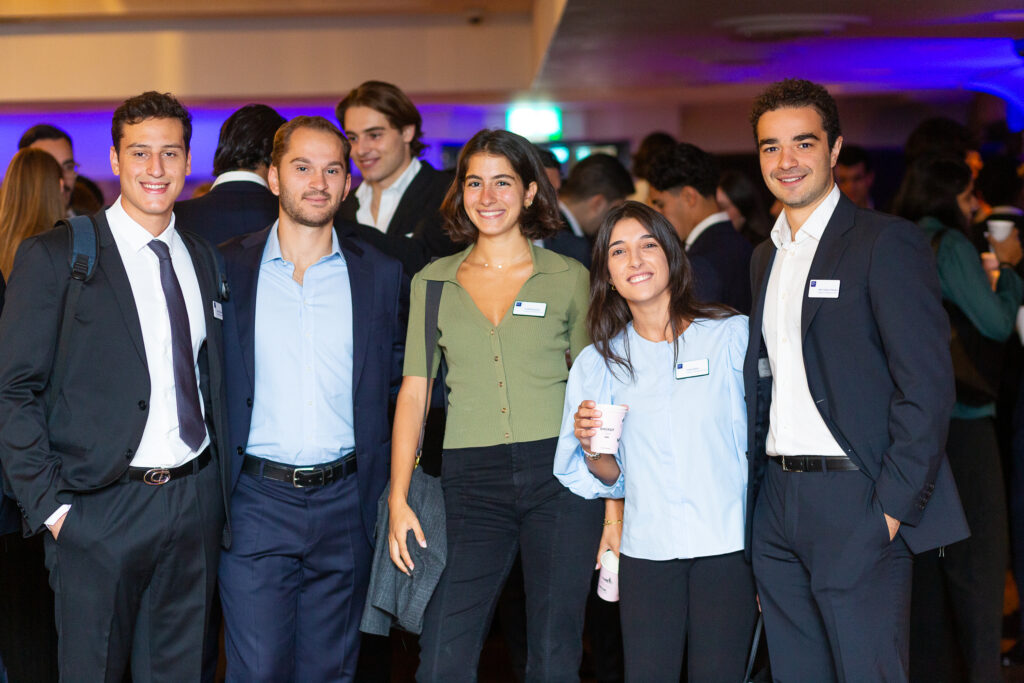By Antoine Bertrand, MFA2025
How do you decide when is the right time to apply? Students in the Graduate Masters programmes (MiM, GMiM, MFA, MAM) apply at different stages of their careers. Below are some thoughts from someone with two-years of full-time work experience prior to joining London Business School.
Who does the programme appeal to?
London Business School offers four dynamic Graduate Masters programmes: the Masters in Management (MiM), Global Masters in Management (GMiM), Masters in Financial Analysis (MFA), and Masters in Analytics and Management (MAM). These programmes are designed to provide a rigorous theoretical foundation while equipping students with practical skills to navigate the complexities of today’s business world. Tailored for those with 0-2 years of post-graduation work experience, they are ideal for individuals looking to accelerate their careers early on.
Beyond academics, the faculty fosters an international community where students collaborate with peers from diverse cultural and professional backgrounds, building a global network that extends far beyond the classroom. The programmes help you hone technical expertise, develop strategic thinking, and cultivate leadership skills, all of which will prepare you to thrive in a wide range of industries.
My Experience: A journey to London Business School

I joined the MFA2025 cohort aged 24 years old from Montreal, Canada, after graduating from McGill University in April 2023 with a bachelor’s in finance. During my undergraduate degree, I completed two internships, one in Audit and another in Infrastructure M&A. After graduation, I gained over a year of experience working full-time in Financial Advisory at Deloitte Canada, specializing in Valuations and Financial Modelling. Additionally, I spent six months as a Founders Associate at Meroka, a start-up, where I managed operations, fundraising, recruitment, and product development. I opted to take the GRE exam and passed the CFA level 1 exam before starting the degree.
Initially, I thought I would be one of the more experienced students in my cohort. However, I was pleasantly surprised by the diverse range of backgrounds among my peers. Some have experience in fields such as science, law, or medicine, while others transitioned directly from undergraduate programmes. The cohort includes students with multiple degrees, professional certifications like CFA, and those with no prior business experience. This diversity has enriched my learning experience and exposed me to different perspectives, making class discussions more insightful and dynamic.
The benefits of joining a year or two after graduating
Having full-time work experience before starting a Master’s programme offers distinct advantages during both the admissions process and the programme itself:
- Real-World Application: Work experience allows you to better grasp classroom concepts by relating them to real-world situations, giving you an edge in case studies and group projects. Work experience in diversified industries can complement the learnings in business school and give you an edge over others down the line.
- Clear Career Goals: After working in industry, you likely have a more focused sense of your career direction, what you like and what you do not like. This helps you tailor your learning, networking, and job search to align with your aspirations, making you use your time more efficiently, and maximizing your experience in London.
- Confidence: With professional experience under your belt, you’ll feel more self-assured in classroom discussions and networking events, able to contribute meaningful insights from your previous roles. You’ll be able to have more meaningful conversations with employers and industry experts, telling stories and anecdotes about your time before the masters, which can help you stand out from other candidates.
- Return on Investment: After working for a year or two, you’ll have clearer career goals and a better idea of how to maximize your return on investment from a Master’s programme. This is helpful in knowing how to make the most of the London Business School experience and how you take advantage of the opportunities that arrive in front of you.
- Financial Planning: To state the obvious,getting work experience prior to entering the programme can help you accumulate the capital required to fund your studies and life in London. As working during the programme is not recommended, it is an important aspect to consider in your career planning.
- Stronger Admissions Profile: During the admissions process, you can use your work experience to craft a compelling narrative, showing how the Master’s programme is the natural next step towards achieving your personal objectives. Having work experience will enable you to have more realistic career objectives and validate if a graduate degree at London Business School is the best way to move forward in your career.
Taking time to gain full-time work experience before applying to a Master’s programme, as I did, can be a smart move. It enables you to bring real-world experience into the programme, distinguishing you from peers and increasing your employability after graduation. You’ll also have a better understanding of how the practical skills you gain in the programme will translate into future success.
When is the right time to apply?
Deciding when to apply for a Master’s programme is a personal decision and depends on your individual career goals. London Business School’s programmes are designed to attract candidates at various stages of their professional journey. With two years of full-time work experience before joining London Business School, I felt it was the right time for me to deepen my knowledge and build on the practical exposure I had gained in the workplace. Working in the industry made me realize I was ready to take on greater challenges and test my skills on the global stage in London. The School was the right fit for my narrative, as it also enabled me to look for work opportunities in London post-graduation, something that had always been a dream of mine.
How does the programme fit your story?

Perhaps the most important aspect of your application is how the programme fits within your personal and professional story. Every student has their own motivation for attending, and their journey post-graduation is equally unique. Whether you’re entering with little experience or several years in the workforce, a graduate degree is just one step in your broader career journey. Your application should clearly articulate how the programme will help you achieve your long-term goals.
The Admissions Committee looks for students who can contribute to the classroom and excel after graduation. If you have work experience, highlight how it has shaped your career goals and prepared you to make the most of the programme. Demonstrate how your hands-on experience will complement the academic training you’ll receive and enable you to bring unique perspectives to the cohort and lift the experiences of other students in the class.
Deciding when to apply is a highly personal choice. Some students apply directly after undergrad, while others, like me, wait to gain some professional experience. If you feel that you’ve learned valuable lessons from your work but want to advance faster, or if you’re looking to pivot careers or broaden your opportunities, it may be time to invest in further education.
Looking back, the MFA programme at London Business School was a pivotal enabler in my aspirations of living in London, expanding my global network, and building a career that aligns with my ambitions. How will it help you achieve your goals?
Feel free to reach out if you have any further questions or want to chat more about my experience. You can email me at abertrand.mfa2025@london.edu or connect with me on LinkedIn.
Good luck!
